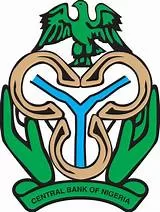
With less than seven months to the Central Bank of Nigeria’s 31 March 2026 recapitalisation deadline, several Nigerian lenders have already crossed the finish line, securing the capital buffers required under the new rules and setting the pace for the rest of the industry.
The CBN’s March 2024 directive raised the minimum paid-up capital to N500 billion for international banks, N200 billion for national, and N50 billion for regional lenders. Non-interest banks face lower thresholds of N20 billion and N10 billion, depending on their authorisation.
The two-year compliance window, which excludes retained earnings, compels lenders to raise fresh equity, merge, or restructure their licences as part of a wider push to fortify the sector and align credit capacity with Nigeria’s $1 trillion economy target.
Access Holdings is among the frontrunners, having raised N365 billion through a rights issue that pushed its paid-up capital comfortably above the N500 billion floor for international banks. Its recapitalisation was strongly subscribed, reflecting both local and offshore investor appetite.
Zenith Bank followed with more than N350 billion in fresh equity, while Stanbic IBTC Holdings, supported by its South African parent Standard Bank, has also crossed the line through a mix of rights issues and balance sheet surpluses. These three now anchor the international category with room to spare.
In the national authorisation tier, Wema Bank has been one of the most aggressive movers. The bank raised N150 billion in 2024 through a rights issue and added another N50 billion last year, lifting its capital base above N200 billion.
Once a mid-tier lender, Wema has leveraged its ALAT digital platform to attract retail growth and investor confidence, with its share price nearly tenfold between 2020 and 2025. Providus Bank has also completed its recapitalisation, securing fresh equity to meet the national benchmark while deepening its franchise in trade finance and SME banking.
Among specialised institutions, Greenwich Merchant Bank has sealed its own recapitalisation, supported by capital injections and debt-to-equity conversions that secured its merchant banking licence. In the non-interest category, Jaiz Bank has raised above the N20 billion threshold, reinforcing its pioneer status in Islamic finance, while Lotus Bank has met the ₦10 billion bar, consolidating its place in Nigeria’s fast-growing alternative banking segment.
Another notable entrant is Globus Bank, which in 2024 raised N52.9 billion to lift its capital to N98.6 billion and followed in 2025 with a further N102 billion through rights issues and private placements. The raise, subscribed entirely by existing shareholders, took its capital above N200 billion. The bank now awaits final verification from the CBN before being formally recognised as compliant.
The implications of these moves extend beyond regulatory compliance. Stronger balance sheets give these banks greater headroom to expand lending in infrastructure, energy, and manufacturing, positioning them to play a more decisive role in financing Nigeria’s economic ambitions. Investor appetite has rewarded early movers: Fidelity Bank’s stock rose more than 1,100 percent between 2020 and mid-2025, Wema’s jumped nearly tenfold, while Access, Zenith, and Stanbic all posted steady appreciation, underscoring market confidence in well-capitalised institutions.
For those still short of the line, the window is narrowing. First Bank Holdings, GTCO, UBA, FCMB, and Sterling are among the larger players still in the market. Several have completed partial raises, First Bank has secured N187.6 billion and plans an additional N350 billion private placement — but more is needed. In an environment of high interest rates and subdued investor risk appetite, raising the remainder will be a test of strategy and timing.
Consolidation pressures are also reshaping the industry. Titan Trust’s acquisition of Union Bank and Unity Bank’s ongoing merger talks reflect the reality that not every institution will raise sufficient equity alone. More combinations are expected in the months ahead, with smaller lenders likely to be folded into stronger franchises as the deadline approaches.
The achievement of early movers sets an implicit benchmark for the sector. Access, Zenith, Stanbic, Wema, Providus, Greenwich, Jaiz, and Lotus have already cleared their requirements, while Globus awaits regulatory confirmation. Their compliance demonstrates that recapitalisation is achievable even in a tough macroeconomic climate, and signals to the market that Nigeria’s banking industry is preparing for a new cycle of growth on a stronger footing.
For investors and depositors alike, these developments offer reassurance. Banks that have secured their capital positions are better placed to withstand shocks, expand credit, and attract new inflows. For laggards, the next six months will determine not only their compliance but their place in the future map of Nigerian banking
 Premium News
Premium News